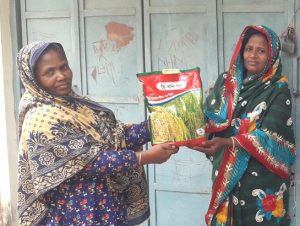Dhaka, June 25 – Bangladesh Standards Testing Institute (BSTI) yesterday in a report submitted before the High Court said that it did not find any harmful elements after conducting
However, Dhaka University’s Pharmacy Faculty and Biomedical Research Centre yesterday revealed that they have jointly
Talking to this correspondent, BSTI deputy director Riajul Haque said that they have collected 18 samples from the market and conducted
These brand milk
During yesterday’s proceedings, BSTI lawyer barrister Sarker M Hasan Mamun wanted to submit the report before the HC bench of Justice Syed Refaat Ahmed and Justice Iqbal Kabir saying that BSTI authority did not find any harmful ingredients into the 14-brand
But, the HC bench said that there is similar matter on
“So, you (BSTI lawyer) move the case before that bench by filing this report. It will not be
But, Advocate Aneek R Hoque, counsel for the petitioner, told the court that the matter is now nearing the completion by this bench. “We want to dispose of the case by your lordship,” Hoque said.
Later, the bench adjourned hearing till Thursday.
Advocate Tanvir Ahmed, a Supreme Court lawyer, filed the writ petition before the HC on May 20 in last year following several reports published in national dailies stating that 75
Following the writ petition, the HC bench asked the BSTI to submit
Meanwhile,
Researchers have found traces of detergent and antibiotics in pasteurized milk produced by
According to the BSTI standards, ‘fat in milk’ will be 3.5% and ‘solid not fat’ should be more than 8.25.
Where 7 of 6 tested samples of milk did not contain the desired ‘fat in milk’ and there was no desired ‘solid not fat’ in any of them.
Also, the presence of harmful antibiotics and detergents for the human body in the sample was also alarming.
Apart from this, the image of value degradation of various edible oils, including Rupchanda, Pushti, Suresh, Danish, and Boshudha are
Prohibited banned Cyclamate
Apart from this, the
The main researcher of the study ABM Faruque, professor of clinical pharmacy and pharmacology department of Dhaka University, said, “The availability of excessive coliforms has been found by testing the milk of these companies. Besides, antibiotics have also been found in some milk.”
“The traces of antibiotics that we found were meant for human consumption. Antibiotics for humans and animals are totally different
Milkvita, a government organization, is selling quality
“We researched and disclose the results days after days. But those who are
It may be mentioned that during a
BSTI sources said that it had conducted lab tests of 305 items of raw cow milk, curd and fodder samples picked up from various places of the markets. But, it has found that all items except two have maintained standard quality.
BSTI submitted the test report before the HC bench on June 23 as per its earlier directive. After receiving the report, the HC bench wanted to know the names and particulars of the companies and firms that are producing and supplying milk and curd in Dhaka without having any license and asked BSTI to submit a report before it by July 15 in this regard.
The HC bench issued
According to the report, 18 out of 31 powdered fluid milk samples contained harmful substances. The




